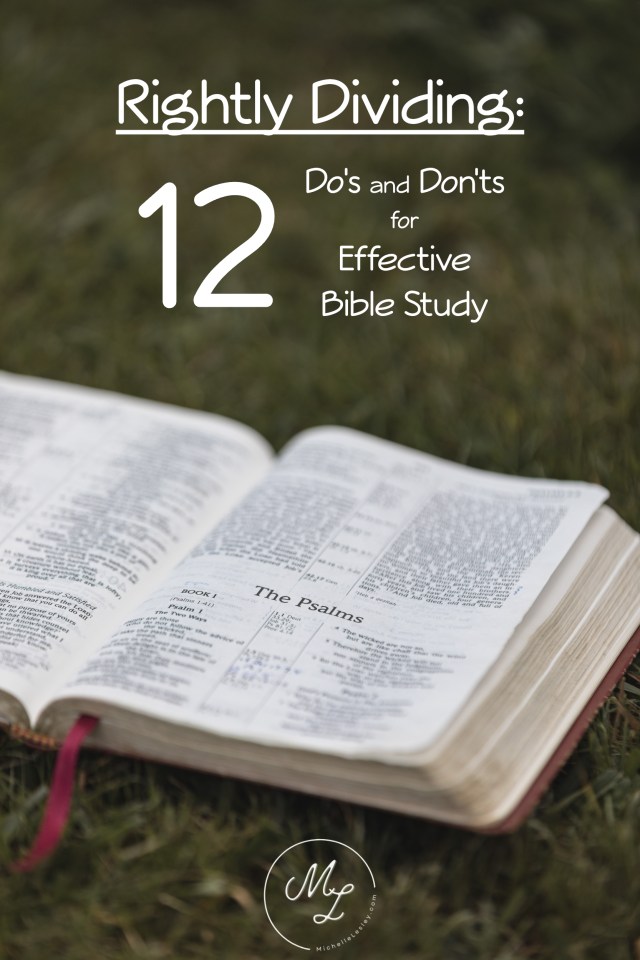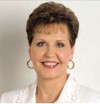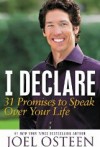Originally published November 9, 2018

A dark, hazy room, colored lights flashing, filled with people swaying to chart-topping music, their drink of choice in hand, just there to have a good time with friends.
Is it a club? A concert? A party?
Or church?
With our coffee bars, cutting edge music from the latest and greatest Christian bands, and come hither atmosphere of smoke machines, light shows, and fun, fun, fun, sometimes it’s hard to tell.
And just as we import worldliness into the church, we’re exporting worldly Christians to our local communities. “Christians” who lie, cheat, carouse, defy authority, use profanity, angrily explode, and are sexually immoral. It’s getting more and more difficult to distinguish God’s people from worldlings, and the worldlings are growing disillusioned. Not just with us, but with God.
It’s getting more and more difficult to distinguish God’s people from worldlings, and the worldlings are growing disillusioned. Not just with us, but with God.
Tweet
“What’s the point of believing in a God who produces people who look exactly like I do?” the world wonders. “What kind of impotent God is this, anyway?”
God gets that. He has gotten that from time immemorial.
He is different. He is other. He is in a class by Himself.
And as His people, we’re supposed to reflect that otherly set apart-ness by being otherly and set apart ourselves.
God didn’t command His people not to wear garments of mixed fibers because He was trying to support the Egyptian cotton market, and He didn’t forbid His people to eat crustaceans to ruin date night at the Red Lobster. He wanted His people to be unique among the pagan nations as He was unique among the pagan gods. He wanted those pagan people to point their fingers at the Israelites and say, “Those people are different, and I want to know why.”
God wants pagan people to point their fingers at God’s people and say, “Those people are different, and I want to know *why*.”
Tweet
As God’s people living among pagans today, we have the same unique opportunity to point them to the one, true God. How? By unhitching from the Old Testament, as some would have us believe? No. I tell you, we need to look back to our forefathers in the faith and take a page out of their Book. Not by wearing dietary laws on our sleeves of 100% cotton, because we’re not Jews. But by simply obeying God’s commands to His people today.
It ain’t rocket surgery, folks. We don’t need to take surveys to find out what pagan people want. We don’t need gimmicks and tricks. We don’t need to scour Christian industry catalogs hoping against hope that we can find some thing to order that will attract lost people to Jesus.
The most jaw-dropping, astounding, attention-grabbing thing in this world is simple Christians living in simple obedience to God’s simple commands. Isn’t it amazing that something so simple is simply amazing to the world?
The most jaw-dropping, astounding, attention-grabbing thing in this world is simple Christians living in simple obedience to God’s simple commands. Isn’t it amazing that something so simple is simply amazing to the world?
Tweet

Want to be wonderfully, wildly weird to the world so they’ll wonder why? Try these six things.
1.
Submit to your husband
There’s nothing more “against the grain” right now than God’s design for marriage. Feminists have brainwashed many women (and men) into thinking there’s a better way, but we have only to look back across the last several decades to see a landscape littered with unhappy marriages, divorce, abuse, abortion, cohabitation, and single parenting (or…you know…we could look in our Bibles), to know that’s not true.
Ephesians 5:22-33 explains that obeying God’s instructions for being godly wives and husbands isn’t just good for our marriage and home life. It’s a picture of Christ and His church that we get to act out before a watching world.
So when your friend from work catches a glimpse of your “backwards” marriage that seems to be working a lot better than hers and asks you about it, walk through that open door, talk to her, listen to her, and introduce her to the Bridegroom who came to redeem His bride.
2.
Discipline your children
Hardly a week goes by that someone doesn’t compliment me or my husband on how well-behaved our children are. I’m always appreciative of their kindness, and God has truly blessed us with wonderful children, but there’s nothing exceptional about them in the behavioral department, and there’s nothing exceptional about us as parents. My kids are normal. When I was a kid, the majority of kids acted the way my kids act – respectful and obedient – because the majority of parents raised and disciplined their children.
Now, it’s practically an aberration to encounter normal, well-behaved children (even in church – Christian parents, I’m looking at you.). Yes, everybody’s kid acts up from time to time. Yes, some children are naturally more stubborn than others. Yes, some children have legitmate disabilities that can look like misbehavior. I know all the “but’s” and exceptions. But if you obediently bring your children up in the nurture and admonition of the Lord, the overwhelming majority of them are going to be reasonably well-behaved most of the time, and you’re going to have people stop you at the store, the library, their school, and marvel about it. What are you doing as a parent that makes your kid different? And that’s when you get to tell them about your heavenly Father and His one and only Son.
3.
Be kind
It seems like everyone you run into these days is hurting. Even the people who mistreat you in a rude, angry way are probably acting that way because they’re hurting inside. They don’t know how to handle it, they have no peace, and they’re without hope. All because they’re without Christ.
I used to watch the TV show Undercover Boss fairly regularly. The head of a major company dons a disguise and goes to work among his employees to see how his company is really running and what he can do to improve it. In every episode, the boss gets to know good employees who are going through a difficult time – his mother is dying, her child is sick, he can’t afford a car, she’s trying to work her way through school. And at the end of every episode, the boss reveals himself to the employees and gives each of them thousands of dollars to help with their problems. And at the end of every episode, the employees (and I) are in tears. Yes, the money was helpful and a relief to these folks, but I could see in most of their eyes that it wasn’t just about the money. They were overcome that someone actually cared enough about them to be kind to them.
We live in a cruel, heartless, impatient, unforgiving world. When you take a moment to speak a kind word to someone, provide for a person who’s in need, help a total stranger, offer cheerful encouragement, just to take a moment to obey Scripture’s admonition to care for someone, it knocks people completely off guard. “Why? Why would you be so kind to me?” a young lady once tearfully asked me after I had done a very small thing for her. It was such a joy to wrap my arms around her and explain, “Because Jesus has been so kind to me.”
“Why would you be so kind to me?” a young lady once tearfully asked me after I had done a very small thing for her. It was such a joy to wrap my arms around her and explain, “Because Jesus has been so kind to me.”
Tweet
4.
Turn the other cheek
If someone steals “your” parking place and you stomp over to her and bless her out, is that going to open a door for you to share the gospel with her? Would she even listen to you if you tried?
In the same way that hurt people expect others to hurt them, people who lash out in anger or do something they know is unfair or unkind expect an angry response from others.
Don’t give it to them. Just don’t. You don’t have to, if you’re a Believer. You have the Fruit of the Spirit of self control.
Obey Jesus’ teaching to turn the other cheek and go the extra mile, and watch as a gentle answer turns away wrath, and, hopefully, leads to a conversation about the Prince of Peace.
5.
Say, “I was wrong.”
The heaviest artillery in a lost person’s arsenal is to accuse or prove someone of being wrong. The reason that even exists as a weapon is because everyone’s natural instinct is to dig our heels in, make excuses, and insist we were actually right.
It can be almost comical to watch someone process from self-righteous victory to “What just happened here?” confusion when you unabashedly admit you were wrong, graciously apologize, and offer to make things right. And, of course, if you realize you were wrong about something before anyone else does, you don’t have to wait to be confronted. You can march in and throw yourself on the “I was wrong,” grenade before anybody realizes what’s going on.
It’s hard to admit we were wrong about something, because, even as Christians, we struggle with pride. Pride is all lost people have to hold on to, so it doesn’t compute when Christians willingly lay down their pride and take up humility by admitting and apologizing for wrongdoing. “It took guts to own up to that,” your neighbor thinks, “I wonder what motivated her to do that?”. Because, dear friend, I have a Savior who, in humility, laid everything down for me. How could I not lay down something so small in obedience to Him?
6.
Forgive
What is a worldly person’s response when someone wrongs her? Anger. Bitterness. A grudge as high and long and thick as a brick wall. “I will never forgive you!” screamed as she slams out the door and out of that person’s life forever.
The kind of response Christ has every right to extend to us for our sin…but chooses not to.
Think back to when Christ saved you. Do you remember how heavy your sin was and how hopeless you felt? And then, that glorious moment that took your breath away when, for no other reason but grace and mercy, He cleansed you of all your rebellion and wrongdoing and pronounced you forgiven?
When we forgive someone who has sinned against us, we have the honor of pulling back the veil and giving a sinner a peek at the forgiveness Christ offers. It might be the kind of forgiveness He asked for the unrepentant who were crucifying Him. Or it might be the forgiveness He extended to a repentant woman whose sins were many.
“Why would you forgive me? I would never forgive someone who hurt me like that.” It’s the perfect moment to tell her about the One we have all sinned against, who delights to extend forgiveness to each of us.
The people around us, watching us every day, need Jesus. As His servants and ambassadors, we have the privilege, the honor, and the responsibility to represent Him well to them by simply obeying His Word. The world doesn’t need “Christians” who look just like them. The world needs Christians who look just like Jesus.















